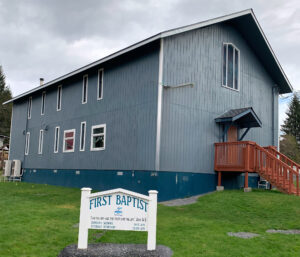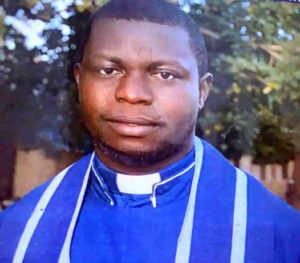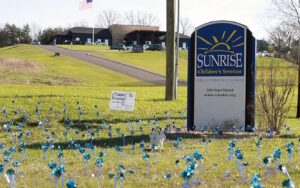
LITTLE ROCK, Ark. (BP)–Dec. 1, 1995, is a day Len Turner will never forget. It was the day his world came tumbling down around him.
As pastor of a leading Southern Baptist church in south Georgia, the 48-year-old pastor seemed to be on top of the world. Under his leadership, the congregation was seeing hundreds of lost people saved, membership had quadrupled and they were breaking every record in baptisms and giving. Turner’s ministry success was one many pastors only dream of.
But on that winter day three years ago, without warning, Turner gave it all up and walked out the church doors. His abrupt actions shocked his church, family and fellow pastors and quickly resulted in unfounded rumors of scandal and misconduct. Eventually the truth of his departure revealed that the pastor who seemed to have it all on the outside was falling apart on the inside, a consequence of ministry burnout, exhaustion and stress.
Turner shared his walk through crisis and God’s ultimate direction for his life with more than 110 Arkansas Baptist pastors, staff and family members, many of whom have walked in similar shoes. The “Strength Under Stress” conference held Jan. 11 at Parkway Place Baptist Church in Little Rock was sponsored by the Arkansas Baptist State Convention and LifeWay Christian Resources’ LeaderCare program.
During this first-time meeting, Turner and state convention Executive Director Emil Turner reminded conference participants that hope is the central factor in stress and potential burnout in ministry, the theme of the one-day meeting. Brooks Faulkner and Tommy Yessick of LeaderCare offered tips and suggestions for confronting and preventing burnout and stress. LifeWay President James T. Draper Jr., the scheduled keynote speaker, was not able to attend the event due to personal illness.
Bruce Swihart, leader of the ABSC’s leadership and worship team, called the meeting an “opportunity for Arkansas pastors, directors of missions and staff to receive wise counsel in dealing with stress and problems that arise in ministry.” He added “there are many things we all are going to have to face; it’s life and we must learn to deal with it.”
Affirming the event “really touched on points of felt need in the lives of ministers,” Swihart said the conference also “offered them assistance in these areas.”
During his testimony, Len Turner explained the days following his exit from the ministry were ones he would never have fathomed in his wildest dreams.
He shared that his family and friends persuaded him to admit himself into a Christian health facility. His hospitalization resulted in a diagnosis of severe stress, burnout, excessive compulsive disorder and deep personal insecurities. Doctors told him he would need long-term counseling and medical help and could not preach or work for at least a year.
“My doctors said God must really have loved me a lot, because they didn’t know how I had made it this far,” Turner noted. “They told me I was really sick and that the ball was in my court and only I could decide to let God help me.”
Turner took his doctors’ advice and looked to the only One who could offer him hope. “I turned it all over to God and asked him to forgive me that it took this to get my attention. I wanted a thorough and complete healing,” he shared. “I thought it was all over and finished but God said no. He worked a miracle of nurturing and healing.”
Speaking from his past experiences, Turner reminded the audience God never stops loving and providing for his own. “I’d preached it for years, but didn’t know it personally.”
Noting ministers must also learn the real value of family and friends, he emphasized it also is important to remember “when God calls you, he never withdraws that call. If God calls you, you don’t have anything to prove but only be approved by the One who made that call.”
Turner warned the audience not to let personal pride, like his, get in the way of admitting problems. He urged them to seek God’s guidance and ask for help from fellow ministers during hard times.
“Don’t go over the edge or even to the edge but to God and godly men who can help,” he urged. “Jesus paid the price to take us out of it. He’s greater than all problems. Take it to him and he will bring ones to encourage and help you.”
Conference participants were given the opportunity to gather in small groups to share their stories and offer strategies to assist in dealing with stress and burnout. At the conclusion of the session, several in the audience voiced advice they found helpful.
During his address, Emil Turner reminded participants that although everyone faces the storms of life, God is still in control. “It’s these storms that will make us better seamen or take us to the bottom,” he said.
Citing John 6 where Jesus calmed the storm that his disciples faced while at sea, Turner noted storms often come when least expected. Like the disciples who had “just experienced one of the most memorable times in their ministry of feeding the 5,000, we often will see storms during times when your church is booming and growing.”
Storms, he said, also are often accompanied by darkness and arise when individuals are doing exactly what God has called them to do. He added that other waves of life occur because of sin and Satan’s “desire to stir up and have a negative impact on seeing lost people be saved.”
As a former pastor, Turner offered several suggestions for weathering the storms:
— Cultivate kindness to those in storms because they could one day be allies.
— Recognize storms can be a result of our own actions.
— Remember that storms don’t last forever.
— Become a student of storms.
— Remember God always comes through the storms.
Faulkner told the group “forced termination” continues to be a real problem, only a small percentage of which has been a result of immorality. Seeking to help reduce the problem of forced terminations, he shared examples for confronting situations and issues that likely will arise in ministry. Noting getting one’s way is not always the answer, he encouraged ministers to discover alternatives to bailing out. Pointing out that criticism is inevitable and anger can be a killer, he emphasized a quick fix does not always lead to long-term healing.
Faulkner also offered a prescription to avoid termination. He said the medication includes laughter, friendships, childlikeness, recreation and spending time with God. “Like Jesus, we must constantly go away to get perspective and guidance,” he said.
Yessick, a LeaderCare wellness specialist and consultant, shared several tips for managing stress. He said effective stress management can be accomplished by “nurturing the emotional, physical and vocational well-being,” adding that “it was not the straw that broke the camel’s back; it was the load he was already carrying.”
Several conference participants reported they found the meeting beneficial and uplifting. Others have requested that state convention leaders offer similar events on the associational level.
“Stress and burnout are a part of ministry,” noted Bill Hillburn, pastor of Bingham Road Baptist Church, Little Rock. “This was a chance for us as pastors to come together with others who have been in similar situations and hear their experiences.”
“Stress is a matter of life, a lot of which is self-imposed and must be dealt with,” said David Ard, pastor of Olivet Baptist Church, Little Rock. “As we were informed, we needed to come apart before we came apart.”














